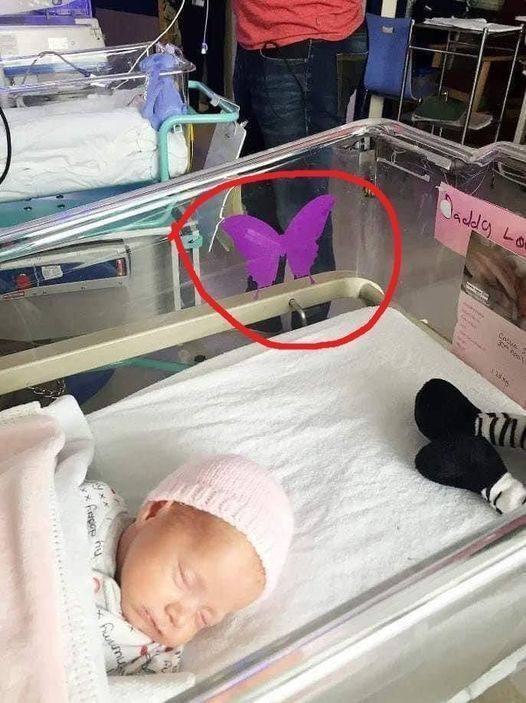Millie Smith and Lewis Cann were over the moon upon the revelation that they would become parents. Having a number of twins in their family, Millie had the gut feeling that she was carrying two babies herself, and her mother’s instinct didn’t fail her.
The ultrasound showed that she was indeed expecting twins, but even at the beginning of the pregnancy, doctor’s could determine that one of the babies wasn’t likely to survive.
When Millie gave birth at 30 weeks pregnant, they were told that one of their daughters had anencephaly, a life-limiting condition where the baby’s brain and spinal cord (the fetal nervous system) do not develop properly.
They were also told that their bundle of joy only minutes to hours to live.
Knowing this, her parents wanted to name her before they could say the final goodbye. They chose the name Skye.
“We knew that Skye needed to have a name before she was born,” Millie said. “Knowing she would only survive for seconds or minutes, I wanted her to be named during that time.”
The meaning behind “Skye,” she explained, symbolized “somewhere we knew she would always be, that we could look up at the sky and remember our baby.”
“We were cuddling Skye when she passed away. This was the worst moment in our lives. I have never ever felt heartbreak like that before. But I am proud that she fought for so long to spend time with us.”
Skye only lived for three hours, time her parents spent admiring her beauty and enjoying her presence into their lives.
Following her passing, the couple were provided with a “bereavement midwife” and a “Daisy Room,” a space where parents can be with their infant before and after death, to help them cope with the loss.
However, once the girl was gone, no one talked about her any more. Millie felt like her baby never even existed, and that made her mad.
“Most of the nurses were aware of what had happened, but as time passed, people stopped talking about Skye. After about four weeks, everyone acted as though nothing had happened, meaning the families around me had no idea about our situation,” the grieving mother recalled.
As her other baby, Callie, was still at NICU, another mother who had just had twins on her own told Millie how lucky she was for not having twins, not knowing of Millie’s loss.
“None of the other parents knew what had happened or anything about Skye. The comment was completely innocent and more out of humor…They weren’t to know that I did at one point have two.” Millie continued, “But the comment nearly broke me. I ran out [of] the room in tears and they had no idea why. I didn’t have the heart to tell them what had happened. A simple sticker would have avoided that entire situation.”
This is when Millie came up with the idea of putting a sticker on the incubator indicating the loss of one or more babies in a set of multiples.
“I chose butterflies, as I felt it was fitting to remember the babies that flew away, the color purple because it is suitable for both boys or girls,” she explained.
Today, her initiative has grown into a foundation, The Skye High Foundation, that supports the purple butterfly initiative. So far, it helped spread the idea to hospitals in many different nations.
The purple butterfly merchandise includes a variety of gifts and accessories.
“Ultimately I will never be able to stop this from happening, but the more support groups we can set up and put things in place like the stickers the better it will be. It’s the hardest thing anyone has to deal with,” Millie said.
